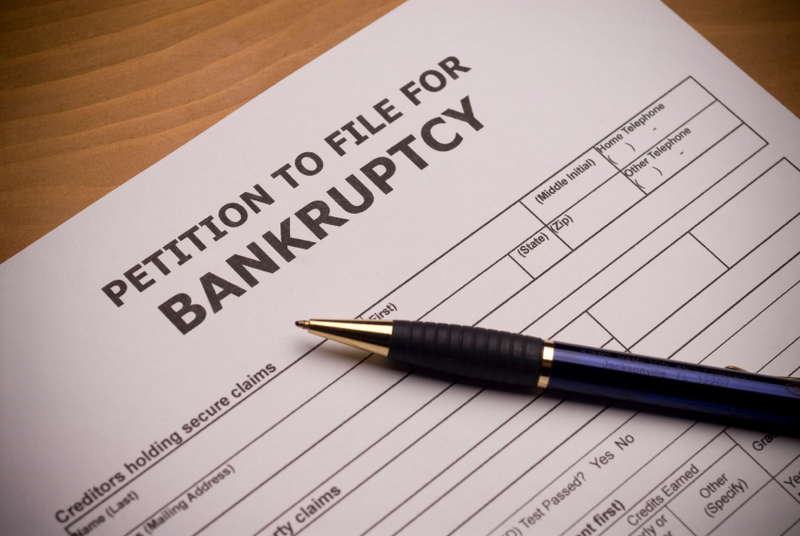<b>I applied for a Parent PLUS loan for my son's education starting this
fall. I was turned down due to filing chapter 7 four years ago this
October. They said I would not be able to get funds until October of
2010. My lawyer, who helped me file chapter 7 said that he believed
this was discrimination and not allowed. Is this true? And if so how
can I get around this problem?
— John V.
The short answer is that current federal law requires the denial of
a PLUS loan if the prospective borrower has had a bankruptcy in the
last five years unless there were extenuating circumstances or the
borrower obtains a creditworthy endorser for the PLUS loan. If one
parent has a bankruptcy but the other does not, the other parent might
be able to obtain a Parent PLUS loan approval. Dependent students may
obtain increased unsubsidized Stafford loan limits if their parents
are denied or likely to be denied a Parent PLUS loan. (Talk to the
school's financial aid administrator about obtaining the increased
unsubsidized Stafford loan limits.) Parents who are denied a Parent
PLUS loan are unlikely to be approved for a private student loan,
though the student might be able to qualify on his or her own.
The long answer is a bit more complicated.
Section 313 of the Bankruptcy Reform Act of 1994 (P.L. 103-394)
amended the US Bankruptcy Code at 11 USC 525(c) to prohibit
the denial of federal student aid — including loans, grants and
work-study — because of a prior bankruptcy or current bankruptcy
filing.
However, section 428B(a)(1) of the Higher Education Act of 1965
requires that borrowers of a Federal PLUS loan not have an "adverse
credit history". The regulations at 34 CFR 682.201(c)(2)(ii) and 34
CFR 685.200(c)(1)(vii)(B) define an adverse credit history as having
had a "default determination, bankruptcy discharge, foreclosure,
repossession, tax lien, wage garnishment, or write-off of a Title IV
debt" within the last five years or a current delinquency of 90 or more
days on any debt.
As Dear Colleague Letter GEN-95-40
(see question #7 of the attachment)
explains, the PLUS loan denial does not violate the US Bankruptcy Code as
amended by the Bankruptcy Reform Act of 1994 because the regulations
concerning an adverse credit history provide exceptions if the
prospective borrower demonstrates that extenuating circumstances
existed or if the borrower obtains an endorser for the loan who does
not have an adverse credit history. (Each new PLUS loan must be separately
endorsed.)
The US District Court for the Northern District of Alabama, Eastern Division,
found that the definition of an adverse credit history does not
violate 11 USC 525(c) in Taylor vs US Department of Education (00-G-3151-E; May 21, 2001).
This reversed the decision of the US Bankruptcy Court
(96-43284; June 26, 2000).
If a dependent student's parent is denied a Parent PLUS loan, the
student becomes eligible for the higher unsubsidized Stafford loan
limits available to independent students. These higher limits provide
for an additional $4,000 a year during the freshman and sophomore
years and an additional $5,000 a year during the junior and senior
years. While these increased limits do not allow the student to borrow
as much as a parent could have borrowed through the PLUS loan program, the
unsubsidized Stafford loan does provide a lower interest rate.
(The regulations at 34 CFR 682.201(a)(3) and 34 CFR 685.203(c)(1)
allow college financial aid administrators to grant the increased
unsubsidized Stafford loan limits even if the parents haven't applied
for a Parent PLUS loan if "the student's parents likely will be
precluded by exceptional circumstances (e.g., denial of a PLUS loan to
a parent based on adverse credit, the student's parent receives only
public assistance or disability benefits, is incarcerated, or his or
her whereabouts are unknown) from borrowing under the PLUS Program and
the student's family is otherwise unable to provide the student's
expected family contribution".)
Note that if only one parent has an adverse credit history, it may be
possible for the other parent to be approved for a PLUS loan. Parents
eligible to borrow from the PLUS loan program include both biological
or adoptive parents (even if divorced), as well as a stepparent whose
income and assets were reported on the Free Application for Federal
Student Aid (FAFSA). Legal guardians and foster parents are not
eligible to borrow from the PLUS loan program.
If a parent is denied a PLUS loan because of a prior bankruptcy, the
parent is unlikely to qualify as a cosigner on a private student loan
because most lenders use a 7 or 10 year lookback for
bankruptcies. However, if the denial is not due to bankruptcy, it is
possible that the family could still qualify for a private student
loan. Several lenders who participate in the federally-guaranteed
student loan program have incorrectly interpreted the definition of an
adverse credit history as involving a 5-year lookback for
delinquencies instead of just a current 90-day delinquency. (This is
technically not a violation of the regulations, as the regulations at
34 CFR 682.201(c)(2)(iii) permit lenders to adopt more stringent
credit underwriting criteria.) This is a stricter standard than is
used for private student loans. Also, a student might qualify for a
private student loan without a cosigner or ask an aunt or uncle
or a friend or other family member to cosign the loan.
Scholarships
Best Scholarships to Apply for Before 2026
Here's your complete guide to high-value awards you should apply for now, from national programs offering full rides to accessible scholarships with early December, January, and February deadlines that could fund your entire college education.
Popular
Latest
Join Fastweb.
Match Instantly.
Become a member and gain exclusive access to our database of over 1.5 million scholarships.
